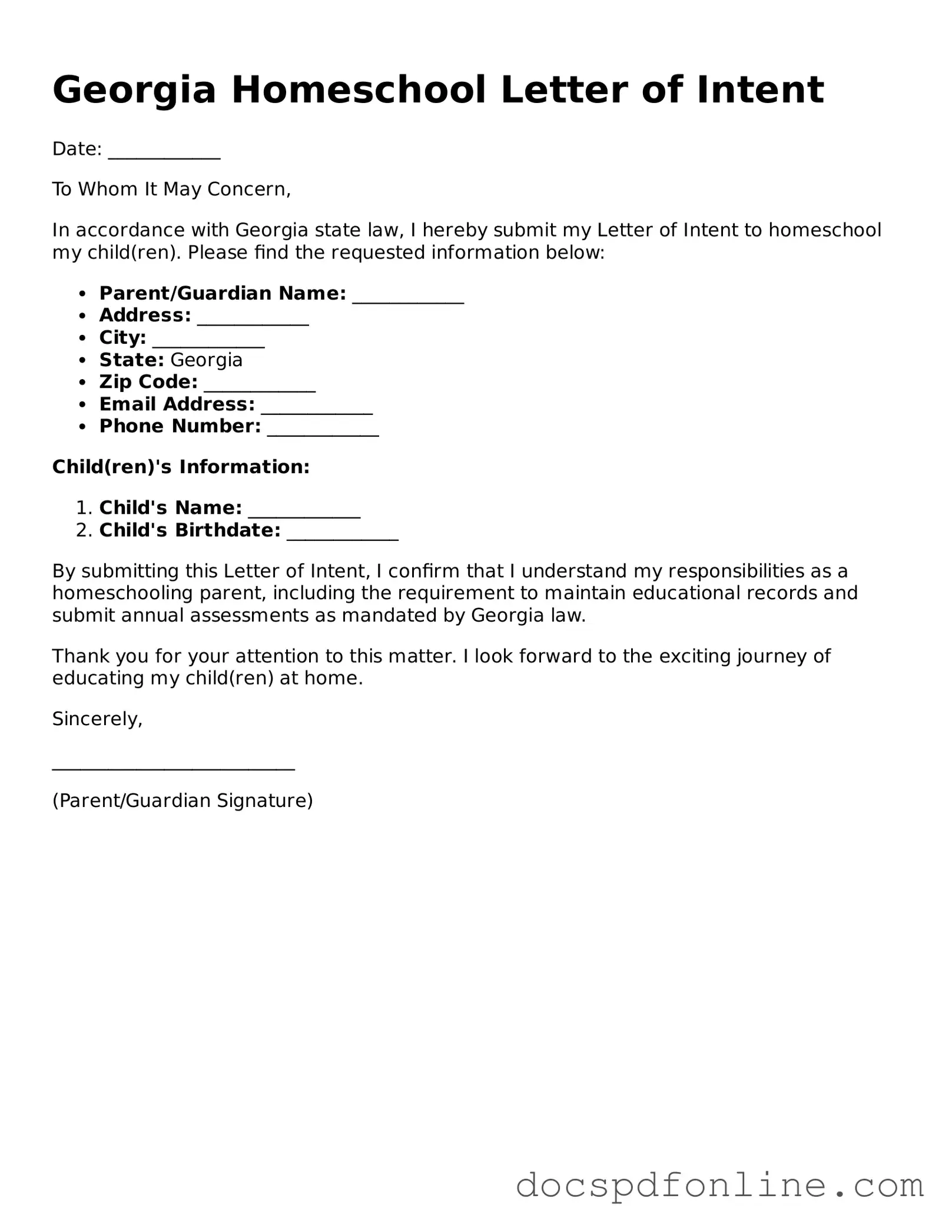Legal Homeschool Letter of Intent Template for Georgia
The Georgia Homeschool Letter of Intent form is a document that parents or guardians must submit to the Georgia Department of Education to officially declare their intention to homeschool their children. This form serves as a notification of the family's choice to educate their child outside of the traditional public school system. Understanding the requirements and process for submitting this form is essential for families considering homeschooling in Georgia.
Launch Editor Now

Legal Homeschool Letter of Intent Template for Georgia
Launch Editor Now
Save time — finish this form fast
Finish Homeschool Letter of Intent online — edit, save, download made easy.
Launch Editor Now
or
↓ PDF File
